Browse
Youth Empowerment
No Preview Available
Nominations open for Leading African Women in Food Fellowship Program
Deadline: Jan 18, 2025
Donor: African Food Changemakers
Grant Type: Fellowship
Grant Size: Not Available
Countries/Regions: Algeria, Angola, Benin, Botswana, Burkina Faso, Burundi, Cameroon, Cape Verde, Central African Republic, Chad, Comoros, Congo (Brazzaville), Congo DR, Cote DIvoire (Ivory Coast), Djibouti, Egypt, Equatorial Guinea, Eritrea, Ethiopia, Gabon, Gambia, Ghana, Guinea, Guinea-Bissau, Kenya, Lesotho, Liberia, Libya, Madagascar, Malawi, Mali, Mauritania, Mauritius, Mayotte, Morocco, Mozambique, Namibia, Niger, Nigeria, Reunion, Rwanda, Saint Helena, Sao Tome And Principe, Senegal, Seychelles, Sierra Leone, Somalia, South Africa, Sudan, Swaziland, Tanzania, Togo, Tunisia, Uganda, Western Sahara, Zambia, Zimbabwe, South Sudan
Area: Agriculture Food & Nutrition, Business & Industry, Poverty Alleviation, Sustainable Development, Gender Equality, Women & Gender
Do you know any woman leading in the Food Ecosystem? If so, they would love to meet them. African Food Changemakers is currently accepting nominations for the Leading African Women in Food Fellowship, an ambitious program aimed at amplifying the voices and work of young African women who are making outstanding contributions and impact across the food ecosystem.
For more information, visit https://lawff.afchub.org/
Premium Link: https://grants.fundsforngospremium.com/opportunity/op/nominations-open-for-leading-african-women-in-food-fellowship-program
Read more

By: Baboki Gaolaolwe-Major
Due Date: Jan, 18, 2025
Agri-food systems
+1
Leave a comment
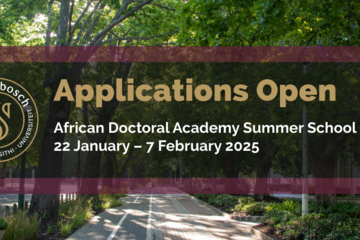
Call for Applications: African Doctoral Academy 2025 Hybrid Summer School
The African Doctoral Academy (ADA) is excited to announce that it will be hosting its annual flagship ADA Summer School from 22 January to 7 February 2025.The Doctoral Summer School programme will run over two and a half weeks, offering a selection of courses both in-person at the Stellenbosch Institute for Advanced Study (STIAS) and online.Read more:https://www.sun.ac.za/english/SUInternational/ADA/apply/apply-now
Read more

By: Baboki Gaolaolwe-Major
Due Date: Feb, 7, 2025
Youth empowerment
+1
Leave a comment
No Preview Available
Grants to celebrate the contribution of African Food to American Cuisine (Uganda)
The U.S. Embassy in Uganda is inviting applications for its culinary diplomacy program, “Celebrating the Contribution of African Food to American Cuisine,” in honor of Black History Month 2025.
💰 Grant Size: $10,000 - $100,000📍 Eligible Country: Uganda
This program seeks innovative projects that celebrate the rich influence of African cuisine on American food culture. Grants will be awarded to projects in:
🌱 Agriculture, Food & Nutrition
🎨 Arts & Culture
🍽 Hotels, Restaurants, and Hospitality
📈 Economic Development
🛠 Career Development
💡 Innovation
For more information, visit https://grants.gov/search-results-detail/356842
Premium Link: https://grants.fundsforngospremium.com/opportunity/op/celebrating-the-contribution-of-african-food-to-american-cuisine-uganda
Read more

By: Baboki Gaolaolwe-Major
Due Date: Nov, 30, 2024
Culture and society
+2
Leave a comment
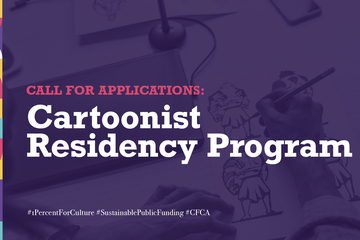
Call for Applications: Cartoonist Residency Program
Are you a talented young cartoonist passionate about cultural advocacy and artistic collaboration? Apply now for the Cartoonist Residency Program — an empowering opportunity to support young African cartoonists through virtual and in-person learning, creative exchange, and cultural advocacy.Click here for more information and to apply: https://cfcafrica.org/call-for-applications-cartoonist-residency-program/
Read more

By: Baboki Gaolaolwe-Major
Due Date: Jan, 11, 2024
Culture and society
+1
Leave a comment
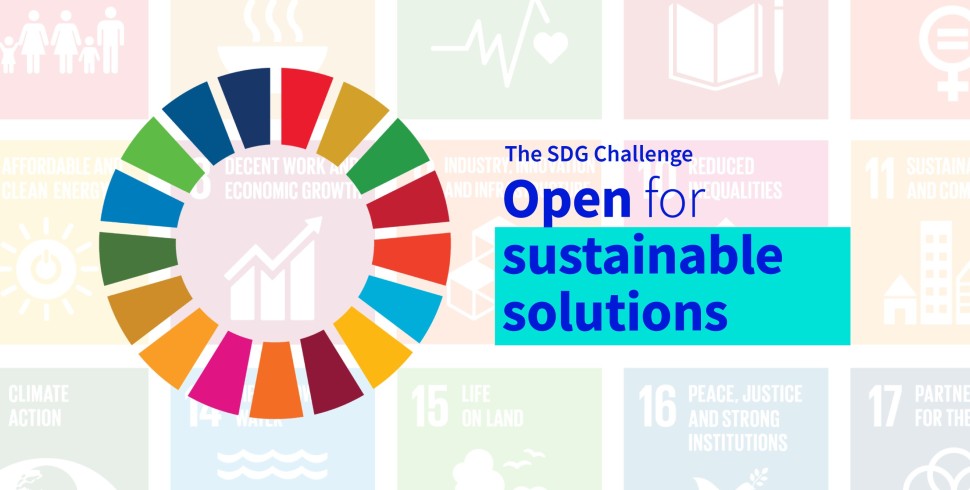
No Preview Available
IRELAND: SFI Sustainable Development Challenge (Over €1,000,000 Grant) 2025
Grant size: 1 million Euros
Donor: The Science Foundation Ireland
The SDG Challenge seeks to support diverse, transdisciplinary teams to develop transformative, sustainable solutions that will contribute to addressing development challenges under the UN SDGs in countries where Irish Aid works.
SFI and Irish Aid are seeking solutions that contribute to SDG 2: Zero Hunger, “End hunger, achieve food security and improved nutrition and promote sustainable agriculture”.
The SDG Challenge supports highly motivated, transdisciplinary teams developing transformative, sustainable solutions for UN SDGs in Irish Aid’s partner countries. Furthermore, interested applicants should take note of the following criteria:
Teams must be transdisciplinary and focused on developing sustainable solutions for UN SDGs in Irish Aid’s partner countries.
Teams should combine technical and non-technical skills and represent collaborative partnerships between researchers in Ireland and the partner country.
Expertise in a STEM research area is necessary ,along with knowledge or experience in complementary fields like international development, economics, or behavioral science.
Two academic researchers must be in the core team, with at least one from a relevant STEM discipline.
Funding should reflect the contributions of all team members.
https://www.afterschoolafrica.com/87048/science-foundation-ireland-sfi-2024-sustainable-development-challenge-over-e1000000-grant/
Read more

By: Tony Milanzi
Due Date: Oct, 8, 2024
Agri-food systems
+5
Leave a comment
No Preview Available
The Mastercard Foundation Fund for Resilience and Prosperity Agribusiness Challenge Fund
Grant size: $500,000 - $2,500,000
Donor: Mastercard Foundation
The Agribusiness Challenge Fund will provide SMEs with innovative and commercially viable agribusinesses across 20 countries in Sub-Saharan Africa the opportunity to receive support to upscale their businesses in a bid to create sustainable employment opportunities for young people, with particular focus on young women.
Selected SMEs will receive support from the Fund, including grants ranging from US$ 500,000 to US$ 2,500,000, disbursed over a 3-year period, based on the applicants’ development stage, scalability and business model, in accordance with agreed periodic milestone targets. The funding structure will be determined on a case-by-case basis after evaluating proposals and organizations. Additional support to successful applicants will include tailored technical assistance in alignment with FRP objectives over the 3-year period.
https://mastercardfdn.org/all/the-mastercard-foundation-fund-for-resilience-and-prosperity-launches-agribusiness-challenge-fund/
Read more

By: Tony Milanzi
Due Date: Nov, 24, 2024
Agri-food systems
+2
Leave a comment
No Preview Available
AREF Research Development Fellowship Programme (Africa)
Deadline: 4th October 2024
Grant size: Fellowship
Donor: AREF Research Development
The Africa Research Excellence Fund is pleased to launch the call for the 2024/25 AREF Research Development Fellowship Programme.
Programme Overview
Aim. To support researchers in Africa who are emerging leaders and working on important challenges for human health, to develop their skills as a researcher.
What we offer. A three to nine-month placement at a leading research institution in the UK, Europe or Africa, with additional support at your home institution before and after the placement. Up to £47,000 available
Who is eligible? Early career researchers. These are research active post-doctoral scientists and clinicians with higher qualifications who are nationals of and employed in Africa (see detailed eligibility criteria).
How to apply. Read the guidance documents carefully before developing your proposal and starting your application. Complete the application form via the portal at https://programmes.aref-africa.org.uk/
https://africaresearchexcellencefund.org.uk/funding-calls/open-funding-research-development-fellowship-2024-25/
Read more

By: Tony Milanzi
Due Date: Oct, 4, 2024
Culture and society
+4
Leave a comment
No Preview Available
Postdoctoral Visiting Fellowships to promote International Research
Deadline: 1st October 2024
Grant Size: Not available
Donor: Kellog Foundation
While at the Kellogg Institute, postdoctoral fellows interact with leading scholars one-to-one and through the Institute’s seminars and lectures, international conferences, roundtable discussions on world affairs, and cultural events. The facilities at the Hesburgh Center are ideal for scholarly research. Fellows have spacious offices, on-site information technology support, and full access to library services, as well as other campus facilities.
We invite applications from scholars who conduct international research on our themes of global democracy and/or human development. Applicants may come from any country and must have recently earned a PhD within the last five years.Most successful applicants will work in a social science discipline or in history. Advanced ABD graduate students may apply, but awards are contingent on their having completed the PhD before June 30 of the starting fellowship year.
https://kellogg.nd.edu/opportunities/visiting-researchers/about-our-postdoctoral-visiting-fellowships#tab-3426
Read more

By: Tony Milanzi
Due Date: Oct, 1, 2024
Youth empowerment
Leave a comment
No Preview Available
Research-Practice Partnership Grants Program
Grant Size: $100,000 to $500,000
Donor: Spencer Foundation
The Spencer Foundation is pleased to announce the Research-Practice Partnership Grants Program to support education research projects that engage in collaborative and participatory partnerships. They view partnerships as an important approach to knowledge generation and the improvement of education, broadly construed. Rigorous partnership work is intentionally organized to engage diverse forms of expertise and perspectives, across practitioners, scholars, and organizations, as well as disciplines and methods, in knowledge generation around pressing problems of practice and/or policy. This grant program is open to existing partnerships between researchers and a broad array of practitioners. For example, practitioners might work in school districts, county offices of education, state educational organizations, universities, community-based organizations, and other social sectors that significantly impact learners’ lives.
https://www.spencer.org/grant_types/research-practice-partnerships
Read more

By: Tony Milanzi
Due Date: Sep, 13, 2024
Agri-food systems
+4
Leave a comment
No Preview Available
Trash to Treasure Program: Empowering Women to Reduce, Reuse and Recycle Waste (Botswana)
Grant Size: $10,000 to $100,000
Donor: U.S. Mission to Botswana
The U.S. Embassy Gaborone of the U.S. Department of State announces an open competition for organizations to submit applications to carry out a Trash to Treasure Program.
The project will enable women waste collectors to access valuable business and life skills through a unique set of training and mentorship through a joint business and empowerment model, providing these women with skills and resources to make lasting change in their lives.
https://grants.gov/search-results-detail/355718
Read more

By: Tony Milanzi
Due Date: Aug, 30, 2024
Youth empowerment
Leave a comment
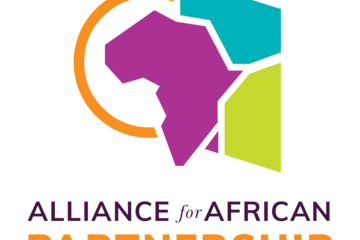
African Futures Cohort 5 - Call for Scholars
The Alliance for African Partnership (AAP) is seeking applicants for the fifth cohort of the AAP African Futures Research Leadership Program. This competitive visiting scholar program supports early career researchers from the AAP consortium to work for one year under the mentorship of faculty members from MSU and their home institution, focusing on building skills in research for impact, writing scholarly and/or policy publications, disseminating of research results, and developing grant proposals for external support. Scholars will also participate in a structured professional development program while building bridges and lasting connections with MSU contacts and across their cohort.
The main objective of the African Futures program is to strengthen the capacity of a cadre of African researchers to return to their home institutions and become scientific leaders in their community, establish long-term partnerships with MSU faculty, co-create innovative solutions to Africa’s challenges, and in turn become trainers of the next generation of researchers. This program aims to address the gender gap in Africa, where only 30% of researchers are women, so scholars selected for the program will be women, or men who can demonstrate they are committed to support efforts towards gender equity in higher education institutions in Africa. The research areas that the scholars will engage in during the program should be aligned to AAP's research priority areas.
The AAP Management Team requests applications from early career researchers to participate in the next cohort, with work to begin virtually in February 2025. Scholars will spend September – December 2025 at MSU for the in-person portion of the program, followed by another period of virtual collaboration, ending in early 2026. The scholar and mentor team will receive a small grant for research and professional development activities including conference attendance and publication. Scholars will also receive a stipend during their time at MSU, visa application support, and round-trip travel from their home institution.
Potential Research Areas
Selected scholars will work in one of AAP’s seven priority areas:
Agri-food systems
Water, Energy, and Environment
Culture and Society
Youth Empowerment
Education
Health and Nutrition
Science, Technology, and Innovation
Selected scholars will be paired with an MSU mentor and commit to working with the MSU mentor and the home institution mentor for the duration of the program.
Program Benefits
Professional development activities – AAP will offer structured professional development workshops centered on topics such as building equitable partnerships, academic time management, proposal development and budgeting, research communication, etc. to establish professional trajectories, to build research, writing, and publishing skills, and to support scholars to move through various stages of review, promotion, and growth.
Leadership activities – this will center on a research leadership retreat to expose scholars to the key competencies of research leaders, the work that research leaders engage in, personal reflection on their characteristics and career goals to help determine the pathway to advancement to research leadership.
Collaboration networks – the early career researcher will be co-mentored by an MSU faculty member and a faculty member from their home institution. Mentors will have the opportunity to visit their counterpart for one week during the duration of the program. The scholar will also gain access to AAP’s broad network of researchers at MSU, across Africa, and beyond. Proposed activities should ultimately lead to potential long-term collaborations between MSU and the partner institution.
Expected Outcomes
Each scholar and mentors are expected to produce the following outputs, at minimum, by the end of the program:
Submission or evidence of publication of one to three joint manuscripts
At least one grant proposal application
At least one conference presentation
Collaborations with mentors are meant to be long-term and continue after the end of the program. Scholars are encouraged to network with MSU faculty beyond their mentor while at MSU. Scholars are expected to submit regular progress reports to AAP and their home institution focal point. Failure to meet program and mentor expectations can result in early dismissal.
Eligibility
Citizen of an African country
Completion of a PhD degree within the last 10 years
Employed as an Academic Staff member at one of the AAP African consortium universities including Egerton University, Makerere University, University of Dar es Salaam, Lilongwe University of Agriculture and Natural Resources, University of Botswana, University of Nigeria, Nsukka, University Cheikh Anta Diop, University of Arts and Humanities, Bamako, United States International University-Africa, and University of Pretoria
Have documented approval of leave or sabbatical to participate in the program for the in-person period
Have a mentor at their home institution that will serve as a collaborator and mentor
Research must be in one of the AAP priority areas
Applicants may only submit one proposal to AAP in this round of funding. Prior scholars are not eligible to apply.
Application Requirements
Applicants should provide the following documents as part of their application package:
An up-to-date curriculum vitae (CV) that provides a chronological review of their professional accomplishments
A letter of interest that demonstrates how their research interest and experience is aligned to the AAP research priority area and how they plan to implement long-term sustainable partnership (1 pages)
(for male applicants) include how they have supported efforts towards gender equity in higher education institutions in Africa
Names of potential mentors at MSU (applicants should browse relevant MSU department’s website to identify up to three faculty that are aligned with their research interests. Applicants should not contact MSU faculty directly - AAP will reach out on the applicant’s behalf)
Two publications in refereed journals related to their research area
Two professional references that detail the relationship to the applicant and provide specific examples of their assessment of the expertise of the applicant’s research area
A letter from the mentor at their home institution indicating willingness to serve as a collaborator during the program, travel to MSU for one week of collaboration discussions, and mentor the early career researcher when they return to their home institution (1 page)
A written endorsement from the applicants’ Head of Department approving leave (1 page)
A letter of support from the AAP Focal Point for the scholar’s application (1 page)
Selection Criteria:
Professional merit, scientific ability, potential career impact and future collaboration goals with MSU faculty (based on CV, letter of interest, publications, Head of dept and home mentor letters, and two reference letters)
Assurance and availability of resources from the home institution for a designated, funded position for the early career researcher upon completion of their fellowship (expressed in letter from head of Dept at the home institution)
Commitment to return to their home country following completion of training (expressed in a letter of interest)
The selection committee will ensure the best match of outstanding candidates and MSU mentors
Additional selection factors may include diversity in scientific research areas and geographic origin
Applications are due on August 18, 2024
Apply: https://msu.co1.qualtrics.com/jfe/form/SV_a60s40TOPXGO5sq
Additional program dates:
Program start date (virtual): February 2025
In-person program: Sept - Dec 2025
Program end date: February 2026
Questions
Please contact José Jackson-Malete at jacks184@msu.edu or +1 517-884-8587 with any questions.
Read more
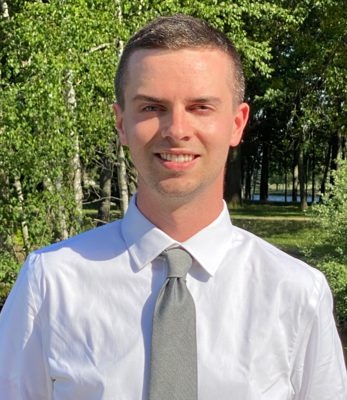
By: Justin Rabineau
Due Date: Aug, 18, 2024
Agri-food systems
+6
Leave a comment
No Preview Available
USADF Call for Proposals (Youth-led Agricultural Cooperatives)
USADF invites applications from registered African agricultural cooperatives, producer groups, processors, and enterprises for grant financing. Grants will support solutions that extend your organizations’ own capabilities to increase your revenues, create jobs, improve farmer incomes, and achieve sustainable market-based growth. USADF is accepting applications in the following countries:
Burundi, Cote d’Ivoire, DRC, Liberia, Mauritania, Nigeria, Senegal, Tanzania, Uganda, and Zambia
Click your country (above) to access the full request for applications including eligible value chains.
Application instructions
Your submission must include the following information from your organization:
financial statements for the last 2 years
registration document
completed grant application form, in English, or French
Applications must be in the sectors identified above for each country.
Applications can be no more than US $250,000.
Submit all documents to the e-mail address found in your country’s call for proposal by the specified deadline. Only complete applications will be considered.
Download a copy of the grant application form here:
ENGLISH APPLICATIONFRENCH APPLICATION
We look forward to reviewing your proposals!
Read more

By: Tony Milanzi
Due Date: Jan, 1, 0001
Agri-food systems
+1

Leave a comment